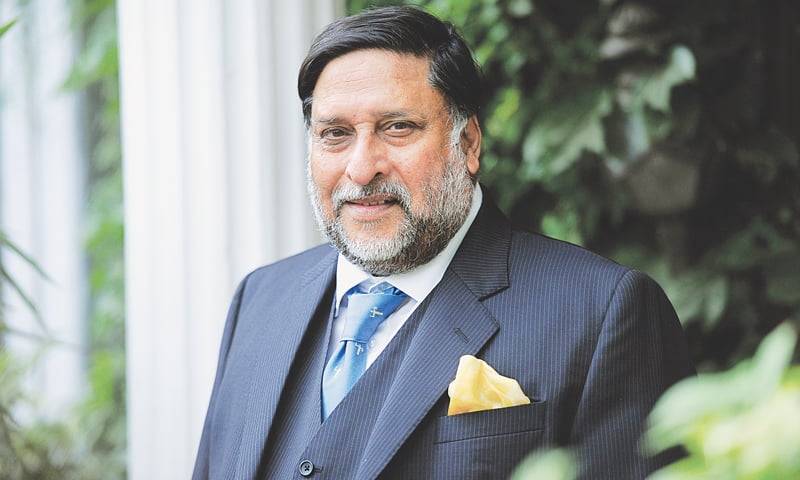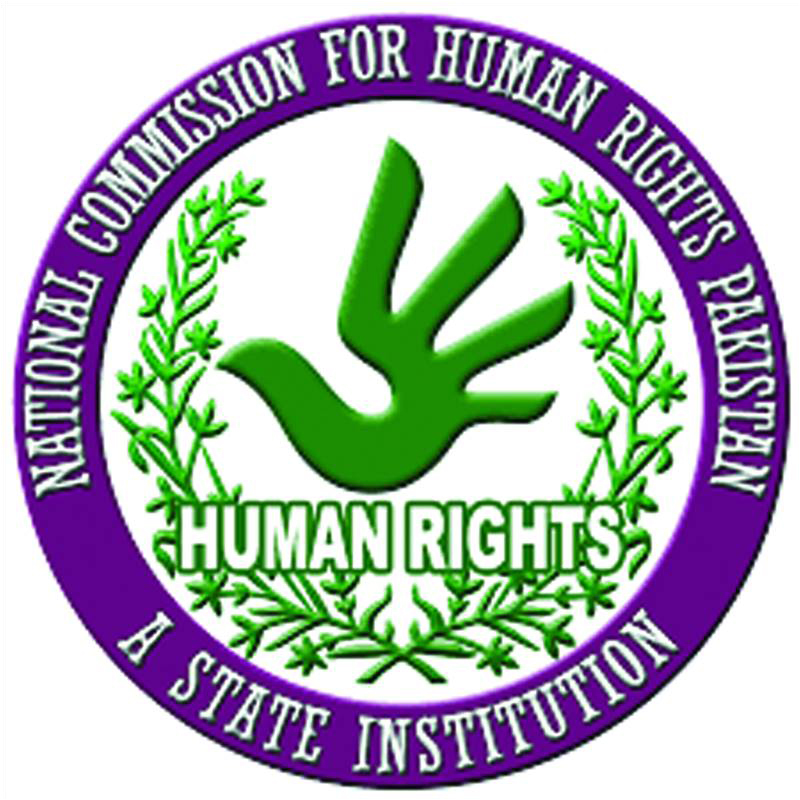
The National Commission on Human Rights (NCHR) was set up in May 2015 under an act of the Parliament as an independent national institution to protect human rights of citizens as guaranteed in the Constitution as well as in various international covenants to which Pakistan is a state party. It took three years for the commission to be actually established after the 2012 legislation. Accountable to the Parliament, it serves as watchdog body on human rights issues. Its chairman and members are selected by a bipartisan parliamentary committee with equal representation of the treasury and opposition members who are then appointed by the government for a period of four years.
The NCHR is mandated to investigate human rights abuses either on the complaint of an aggrieved party, or through suo moto action. It is also tasked to review and report on the implementation of human rights commitments made by the government with the international community, review legislation on the touchstone of human rights principles and make recommendations on the implementation of the treaty obligations besides advising on human rights policies in the country.
Despite serious administrative and financial hurdles, the commission became operational during the past four years. Thanks largely to its former chairman - former chief justice Ali Nawaz Chowhan – the commission made its presence in all provinces, carried out fact-finding missions, visited jails and hospitals and formed a basic complaint redressal mechanism. More importantly, it kept reminding the government of the latter’s failure in meeting international obligations in protecting human rights and pointing out that the claims made in official reports were not entirely credible. It is this function of the commission that seems to have earned the ire of the executive.

The bureaucratic complex, which thrives on secrecy and opacity, has never welcomed an independent body peeping into human rights violations. Before coming into power, Imran Khan’s PTI made all the right noises about human rights. But once in power, it has reneged on its commitments. Two setbacks recently to human rights under the present government’s watch illustrate this.
First, it challenged the Peshawar High Court verdict that held the ‘Action in aid of civil power’ Ordinance and internment centres in Khyber Pakhtunkhwa as unconstitutional. This verdict had directed that the Guantanamo bay-like detention centres be taken over by civilian authorities from the military. Second, instead of implementing, the government appealed against a landmark verdict of the Islamabad High Court in the missing persons case that ordered compensation to the victims’ family besides imposing fines on highly placed state functionaries.
The lack of government’s seriousness about human rights has been brought into sharp focus by its attitude towards the NCHR which is lying moribund and dysfunctional since May, when the four-year term of its chairman and members expired. It appears as if the bureaucracy is waiting for the NCHR to die its natural death.
Applications were sought for appointment as chairman and members of the commission after the expiry of the term of office of the incumbent members. A large number of candidates applied. However, just when the candidates were to be shortlisted, the process was halted, the advertisement inviting applications was withdrawn and an announcement was made that the posts will be re-advertised.
The posts were indeed re-advertised but how? An upper age limit of 65 years was fixed for the posts in contravention of the act which places no such limit. The legislature intentionally had not fixed an upper age limit so as to attract persons with experience in human rights. But this fact was ignored in inviting fresh applications. As expected, the revised advertisement has since been challenged in the courts, stalling the selection process. The NCHR thus remains effectively disbanded.
Apparently the previous chairman of NCHR seems to have annoyed some powerful elements and the government wishes to appoint its favourites. A reason of annoyance is the NCHR report on torture submitted to the UN Committee. While the government reports claimed there was no torture in the country, the NCHR reports have acknowledged widespread prevalence of torture and the absence of a legal framework to address it.
Contrary to the government claim of no torture, the NCHR acknowledges ‘torture in places of detention’ as a big challenge and called for “legally empowered national preventive mechanism” and “amending relevant provisions of PPC, CrPC and prison rules to reduce chances of torture.” It also acknowledged “Pakistan’s counter terrorism initiatives have practically failed to fully comply with its international obligations” and “laws in Pakistan are non-compliant with Article 1 of the UN convention.” Early this year, the chairman of the commission also startled many when he publicly complained that NAB had not permitted him to visit its detention centres to investigate allegations of torture.
Be that as it may, disbanding the NCHR through such bureaucratic tactics or undermining its autonomy will be a gross violation of state obligations. It could gravely impact of Pakistan’s GSP plus status granted by the EU. An independent national human rights commission complying with the Paris Principles is central to our human rights obligations and to arouse credibility at international councils. Disbanding the commission or making it subordinate to the executive will cost Pakistan enormously in terms of any goodwill that it may have earned thus far.
As eminent human rights activist I.A Rehman recently observed, “Whatever the government’s complaints against the NCHR office-holders, the commission cannot be penalised for that. Dissatisfaction with the work of an auditor-general cannot justify any encroachment on the autonomy of his office. Likewise, dissatisfaction with a parliament’s performance would not justify it being put under the police department.”
Machinations to disband the NCHR or make it subservient to the executive smack of mala fide intentions and must be stopped.
The writer is a former senator
The NCHR is mandated to investigate human rights abuses either on the complaint of an aggrieved party, or through suo moto action. It is also tasked to review and report on the implementation of human rights commitments made by the government with the international community, review legislation on the touchstone of human rights principles and make recommendations on the implementation of the treaty obligations besides advising on human rights policies in the country.
Despite serious administrative and financial hurdles, the commission became operational during the past four years. Thanks largely to its former chairman - former chief justice Ali Nawaz Chowhan – the commission made its presence in all provinces, carried out fact-finding missions, visited jails and hospitals and formed a basic complaint redressal mechanism. More importantly, it kept reminding the government of the latter’s failure in meeting international obligations in protecting human rights and pointing out that the claims made in official reports were not entirely credible. It is this function of the commission that seems to have earned the ire of the executive.

The bureaucratic complex, which thrives on secrecy and opacity, has never welcomed an independent body peeping into human rights violations. Before coming into power, Imran Khan’s PTI made all the right noises about human rights. But once in power, it has reneged on its commitments. Two setbacks recently to human rights under the present government’s watch illustrate this.
First, it challenged the Peshawar High Court verdict that held the ‘Action in aid of civil power’ Ordinance and internment centres in Khyber Pakhtunkhwa as unconstitutional. This verdict had directed that the Guantanamo bay-like detention centres be taken over by civilian authorities from the military. Second, instead of implementing, the government appealed against a landmark verdict of the Islamabad High Court in the missing persons case that ordered compensation to the victims’ family besides imposing fines on highly placed state functionaries.
The lack of government’s seriousness about human rights has been brought into sharp focus by its attitude towards the NCHR which is lying moribund and dysfunctional since May, when the four-year term of its chairman and members expired. It appears as if the bureaucracy is waiting for the NCHR to die its natural death.
Applications were sought for appointment as chairman and members of the commission after the expiry of the term of office of the incumbent members. A large number of candidates applied. However, just when the candidates were to be shortlisted, the process was halted, the advertisement inviting applications was withdrawn and an announcement was made that the posts will be re-advertised.
The posts were indeed re-advertised but how? An upper age limit of 65 years was fixed for the posts in contravention of the act which places no such limit. The legislature intentionally had not fixed an upper age limit so as to attract persons with experience in human rights. But this fact was ignored in inviting fresh applications. As expected, the revised advertisement has since been challenged in the courts, stalling the selection process. The NCHR thus remains effectively disbanded.
Apparently the previous chairman of NCHR seems to have annoyed some powerful elements and the government wishes to appoint its favourites. A reason of annoyance is the NCHR report on torture submitted to the UN Committee. While the government reports claimed there was no torture in the country, the NCHR reports have acknowledged widespread prevalence of torture and the absence of a legal framework to address it.
Contrary to the government claim of no torture, the NCHR acknowledges ‘torture in places of detention’ as a big challenge and called for “legally empowered national preventive mechanism” and “amending relevant provisions of PPC, CrPC and prison rules to reduce chances of torture.” It also acknowledged “Pakistan’s counter terrorism initiatives have practically failed to fully comply with its international obligations” and “laws in Pakistan are non-compliant with Article 1 of the UN convention.” Early this year, the chairman of the commission also startled many when he publicly complained that NAB had not permitted him to visit its detention centres to investigate allegations of torture.
Be that as it may, disbanding the NCHR through such bureaucratic tactics or undermining its autonomy will be a gross violation of state obligations. It could gravely impact of Pakistan’s GSP plus status granted by the EU. An independent national human rights commission complying with the Paris Principles is central to our human rights obligations and to arouse credibility at international councils. Disbanding the commission or making it subordinate to the executive will cost Pakistan enormously in terms of any goodwill that it may have earned thus far.
As eminent human rights activist I.A Rehman recently observed, “Whatever the government’s complaints against the NCHR office-holders, the commission cannot be penalised for that. Dissatisfaction with the work of an auditor-general cannot justify any encroachment on the autonomy of his office. Likewise, dissatisfaction with a parliament’s performance would not justify it being put under the police department.”
Machinations to disband the NCHR or make it subservient to the executive smack of mala fide intentions and must be stopped.
The writer is a former senator

